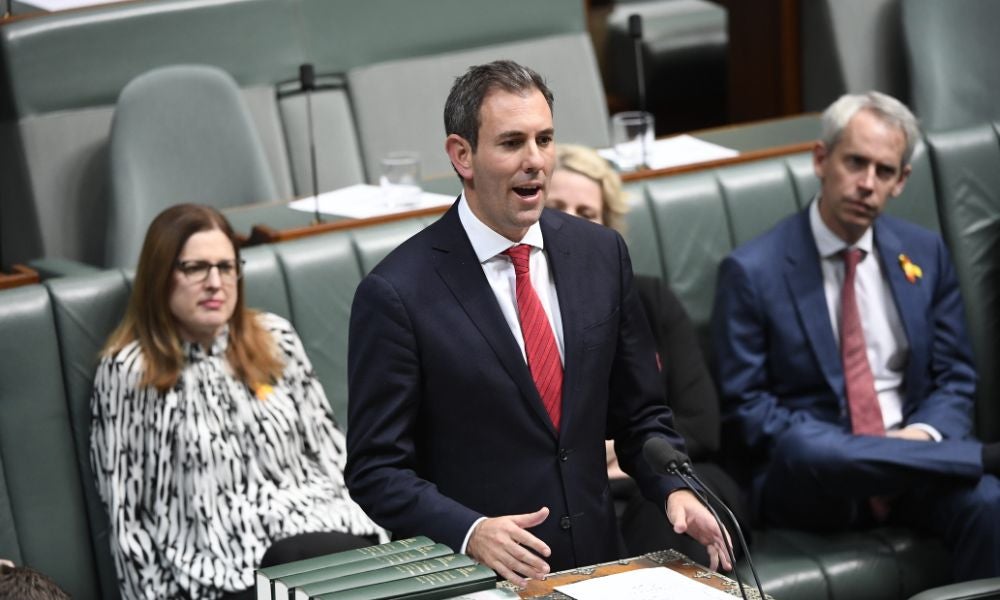Australia is not facing a cost-of-living crisis but rather a ‘cost-of-government’ crisis. A crisis borne of an inefficient and bloated government sector that continues to expand, hindering economic growth while fostering social and intergenerational tensions.
Contrary to the argle-bargle from some quarters, the basic principles of economics are simple. Economic growth is not a product of government planning or of consumer or government spending. Economic growth stems from the expanded production of goods and services which is driven by savings, investment, entrepreneurship, and innovation. Importantly, growth is determined through how resources are used, principally labour and capital, and most importantly, how productively these inputs are used.
The lifting of hundreds of millions of Chinese people out of abject poverty came not from an expansion of government but from the retreat of government. It came from a massive expansion in production powered through savings, and labour moving from lower productivity subsistence and collective farming to higher productivity manufacturing and services.
Fundamentally, without production, there can be no consumption, and it is an unfortunate distortion of this simple reality by statisticians when they use spending data to measure GDP. This flawed approach also enables peculiar statements like that recently from Treasurer Jim Chalmers, who claimed that ‘Without growth in government spending, there’d be no growth in the economy at all.’ Chalmers conveniently ignored the fact that without production, there’d be no taxes, and without taxes, there’d be no government spending.
 Federal Treasurer Jim Chalmers recently claimed that without growth in government spending, there’d be no economic growth, but UNSW Business School Professor Peter Swan observed that without production, there would be no taxes, and without taxes, there would be no government spending. Photo: supplied
Federal Treasurer Jim Chalmers recently claimed that without growth in government spending, there’d be no economic growth, but UNSW Business School Professor Peter Swan observed that without production, there would be no taxes, and without taxes, there would be no government spending. Photo: supplied
A household does not measure its income by how much it spends but rather by how much it earns. And planning a household budget in the hope of winning the lottery is as irresponsible as the Commonwealth projecting a decade of budget deficits in the hope of perpetually high iron ore prices.
It’s very easy to increase the appearance of economic growth by increasing the volume of inputs, such as through immigration. This may increase aggregate output, but it necessarily translates into reduced returns to labour through lower real wages and per capita income. The Black Death decimated the population but dramatically raised per capita income.
By the same token, it may be an insight for members of the big government industrial complex, but real wages do not increase through legislation, regulation, or subsidies. Increasing wages through such means will ultimately need to be paid for via a combination of higher taxes, inflation and unemployment.
The Albanese government’s industrial relations alterations will not lead to sustainable increases in real wages.
It is only through productivity growth, by increasing output per worker, that businesses can increase wages without raising prices. And increasing productivity does not necessarily mean working longer or harder, but rather more efficiently.
Consider the cost of housing in Australia against the reality that ‘since 2014, labour productivity in the Australian construction sector has declined by 18.1 per cent’. Much of this productivity decline can be attributed to regulatory failure.
Addressing Australia’s productivity slump is the key to solving many of our economic problems. It cannot be ignored that, at the same time, Australia is experiencing an extended per-capital recession, per-capita government spending is growing at a rapid pace.
When capitalism works, it does so through what the Austrian-born economist Joseph Schumpeter called ‘creative destruction’. Competition in markets allows new firms to rise up and replace the complacent ones, making the economy ever more productive over time.
This process generates vast pools of wealth, personal and corporate, but only temporarily, as cut-rate competitors raze monopoly profits and concentrations of power. The downside of this rough cyclical justice is more volatility in the markets. The upside is human progress.
Grand government schemes like the ‘Future Made In Australia’ policy will only result in diminished economic growth and lower productivity.
 UNSW Business School Professor Peter Swan explains that increasing productivity means working more efficiently, and not necessarily longer or harder. Photo: UNSW Business School
UNSW Business School Professor Peter Swan explains that increasing productivity means working more efficiently, and not necessarily longer or harder. Photo: UNSW Business School
Since the turn of the millennium, and particularly after the dot-com crash of 2000, governments and central banks have jointly conspired to stop the creative destruction process working properly through repeated bailouts and stimuluses.
The decision to not bail out Lehman Brothers was a rare exception. What researchers have called ‘the cleansing effect’ of recessions has disappeared with recoveries lasting longer but at a slower pace of growth.
The rhythm of the financial markets has also changed in response to increasingly large and active government. Investors have come to assume that good economic news was good for financial markets, but so was bad news because it would trigger more government support. With growing government stifling competition and crippling the process of creative destruction, the largest firms will keep getting larger.
It was not government planning, regulation or industry protection that led to the creation of the steam engine, automobile, or smartphone. If these innovations were developed today, governments likely would impose taxes and regulations to protect jobs in the telegraph and horse-and-buggy industries.
The biggest beneficiaries of no market downside have been the wealthiest. Before the year 2000, billionaires numbered barely 470 but have since surged to around 2800.
The general stupefaction of a business culture pickled in debt might be of less social consequence were it not conspiring to slow economic growth. Who, after all, wants harsher or more frequent recessions, more bankruptcies, or a scarier ride in the financial markets?
By smothering capitalism’s competitive fire, big government is slowing productivity growth. This is lowering long-run economic growth, thus shrinking the pie and concentrating what’s left in fewer hands.
Many Millennials, the next generation of leaders, have been misled into thinking that their distorted version of capitalism is the root of the problem and that a bigger, more interventionist government is the solution. However, the distortions they observe and the inequalities they experience are actually the result of excessive government intervention, not a lack of it.
Australia’s only return pathway to prosperity requires a significant reduction in the size and role of government. As Ludwig von Mises observed and history has confirmed: ‘The worst evils which mankind has ever had to endure were inflicted by bad governments.’
Peter Swan is a Professor in the School of Banking and Finance at UNSW Business School, and Dimitri Burshtein is Principal at Eminence Advisory and a UNSW Alumnus (Master of Commerce and Bachelor of Economics). Originally published in The Spectator Australia.
This article was published by UNSW Business School’s BusinessThink. Subscribe to BusinessThink for the latest research, analysis and insights from UNSW Business School.